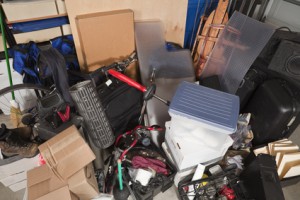 Are you harboring emotional clutter? Look around your home and office. Is it full of unfinished projects? Then the answer is yes.
Are you harboring emotional clutter? Look around your home and office. Is it full of unfinished projects? Then the answer is yes.
The unfinished projects tucked on shelves, in cabinets, and the bottom of your drawers are pulling you down and stopping you from being as organized and productive as you could be. Still not sure that these projects are really holding you back? Ask yourself these questions:
- When people come into your home and office do the unfinished projects and clutter make you embarrassed?
- Do you tell people they can’t come in because of the clutter- or make excuses for them not to visit.
- Do you have articles and books marked to read, slips of paper, to-do lists piling up, small broken things waiting to be fixed?
Record Your Unfinished Projects
Make a list. Open up a word document or pull out a piece of paper. Start free writing and record every unfinished project you have lingering around. Don’t get overwhelmed, you are taking the first step! And you aren’t the only one with a big list.
Purging yourself of these unfinished projects will help you move forward and become more successful in your business and life.
Go through your list and choose only the projects that will move your forward goals in the upcoming year. These are your priorities. Now that you have your unfinished projects laid out in front of you create a schedule. You won’t finish them and reduce your emotional clutter if you don’t have a plan!
Remember moving forward clutter of every kind sucks your energy. It costs you time and money. Focusing on reducing the clutter in your life and preventing new clutter and unfinished projects from piling up in your life will allow you to have the best year in both your business and personal life!
What unfinished projects will you tackle this week?
 Want to live clutter free? We live in a world where we all tend to accumulate more and more STUFF. It happens in both our home and office. We bring more and more things in and get frustrated because we feel unorganized. How do you fix this? One powerful tip will do it.
Want to live clutter free? We live in a world where we all tend to accumulate more and more STUFF. It happens in both our home and office. We bring more and more things in and get frustrated because we feel unorganized. How do you fix this? One powerful tip will do it.
